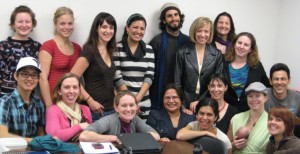COR Grant Recipients
2010 – 2011
Julka Almquist – PPD
The Orange County Great Park Corporation: Future-Oriented Narratives in Organizational Processes
Natalie Baker – PPD
Enacting Stability in Instability: Vulnerable Work in Non-Traditional Organizations
James Bany – Sociology
The Role of Ethnic Organizations in the Construction of Identity: The Case of Mexican- and Italian-Origin Americans
Elizabeth Chiarello – Sociology
Pharmacists of Conscience: Ethical Decision-Making Across Legal, Political, and Organizational Environments
Heidi Haddad – Political Science
Participation of Non-Governmental Organizations at International Courts
Kenji Klein – School of Business
Reclaiming Forbidden Medicine: Interest Groups, Collective Identity, and the Emergence of Medical Marijuana as an Organizational Field
Yong Ming Kow – Informatics
Social Systems of Software Production in Online Communities
Dana Nakano – Sociology
The Power and Pervasiveness of Story: The Merging of Personal, Organizational, and Ethnic Narratives
Daisy Reyes – Sociology
Latino Student Politics: Constructing Ethnic Identities through Organizations.
Kristen Shorette – Sociology
Fair Trade Certified: The Global Institutionalization of Nongovernmental Regulatory Organizations
Amy Voida – Informatics
Understanding and Envisioning Information Systems in Volunteer Management and Coordination
Lydia Zacher – Anthropology
A New Medical Model for Childbirth: Understanding the Role of Mexico’s Emergent Professionalized Midwifery
